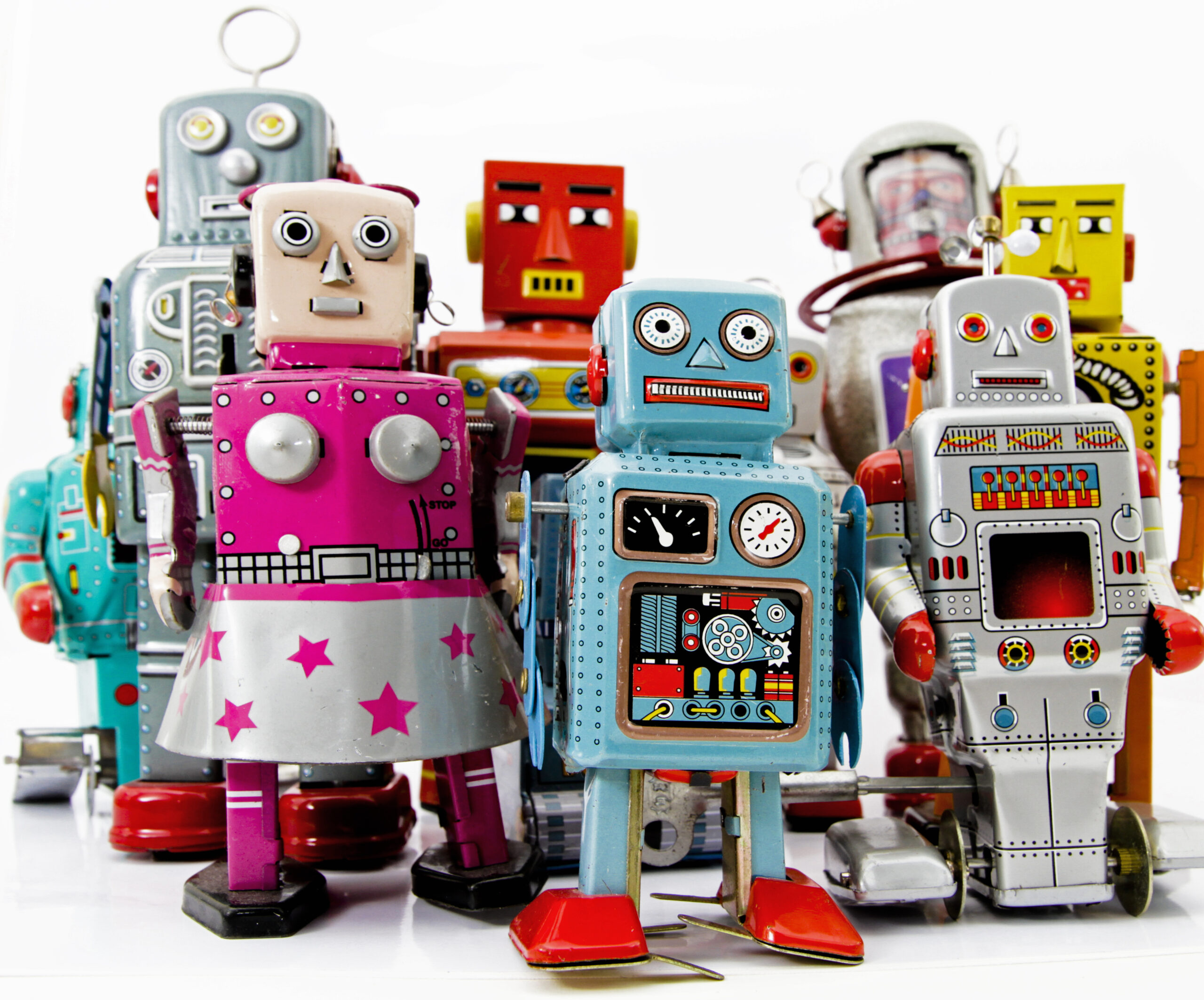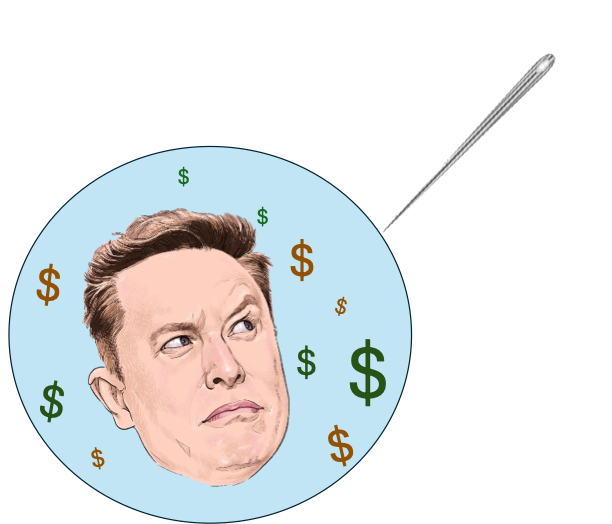Updated: Mar 7, 2022
Mary Poppins references have served me well in the past. So, here’s another one, I look like the mad bird woman. You might as well give me your tuppence because I’m a mess. Muttering to myself and holding a bag of old bread is now part of my look. But do you know what? I’m not the only one. There are not enough tuppences out there to give to everyone who fits that description.
Let’s face it, COVID-19 and the lockdown hit us hard.
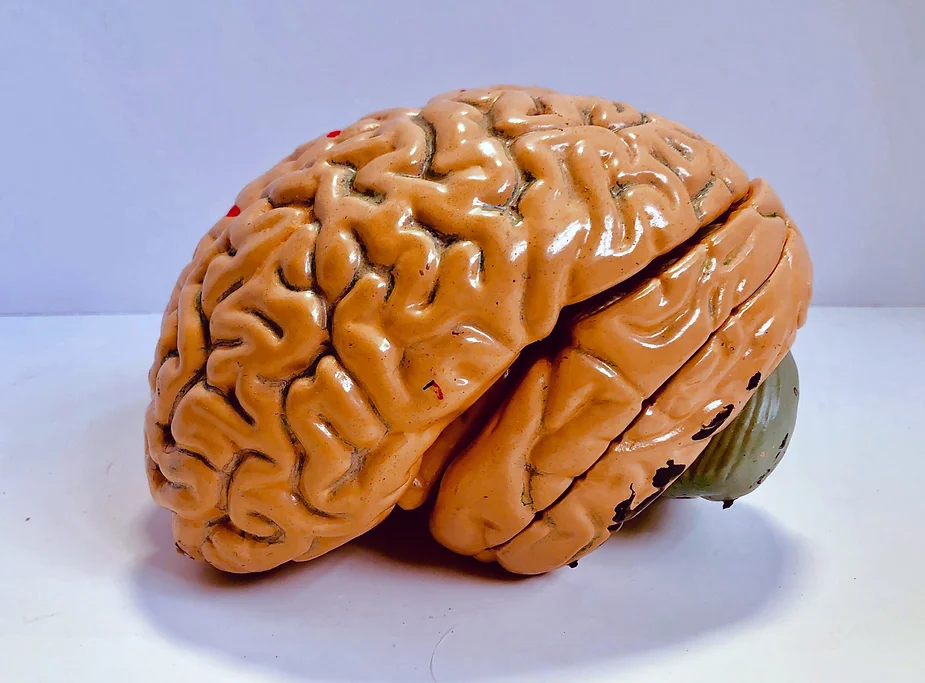
According to the ONS’ latest research (January 2021), almost one in five adults are likely to be experiencing depression. This is double the usual amount, compared to 2019. And overall, a whopping 84.9% of us are feeling stressed or anxious (that’s the category I’d put myself in).
I’d like to get to the bottom of what’s going on in my brain (my brain bottom! Sorry. That’s the new Hannah talking). So, I did a bit of research to try and figure out where I can improve.
To start, I went back to an old favourite, Maslow’s Hierarchy, to see how I can get back to my normal self.
Maslow’s Hierarchy of Needs
I’m no psychologist, but I did study consumer behaviour for my Masters. And this bad boy, Maslow’s Hierarchy of Needs, is serious stuff.
Starting from the bottom, you need to work your way up to feel happy. You can’t achieve self-actualization if, for example, you don’t have access to water. And that was where I saw the first snag. For many of us, I suspect our physical needs are coming under threat.
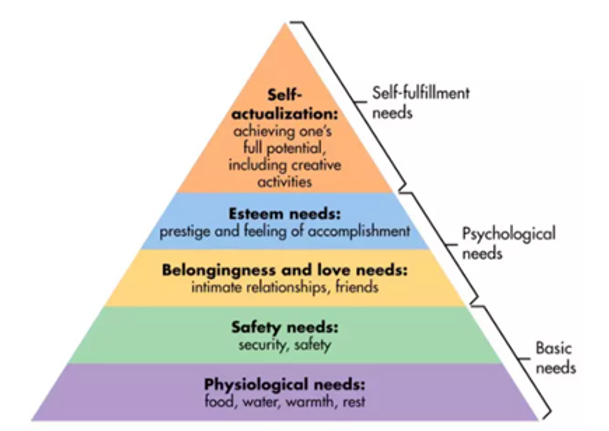
(This next bit is not as depressing as it first appears! I must include some stats because I am a writer, and that’s how I get my street cred. But I quickly cut it out. Promise. Stay with me please.)
Food

Anyone remember the supermarket sweeps that went on last year? People are worried about food. The World Bank has reported a rising insecurity around food shortages, alongside a global 20% rise in the cost of food. Food banks have become a life-line for more and more families. 1.2 million emergency food parcels were handed out by Trussell Trust in the UK between April and September in 2020 alone. We are bombarded with these images all over our media. (Including me just now, sorry). And it must be unsettling for our brains.
Warmth and Rest
Loads of people worried about not being able to pay for their home. Mortgage holidays were one of the first things that the government did to try and calm the pandemonium. I’m not going to add a bunch of stats, because I can already see this article will get really depressing, really quickly, which was so not the point! But the point I’d like to make is that I think this constant cycle of furlough worries and house prices must be triggering some sort of alarm for us. Our basic needs feel really threatened right now. Even if we are not directly threatened, we feel it.
Safety and security
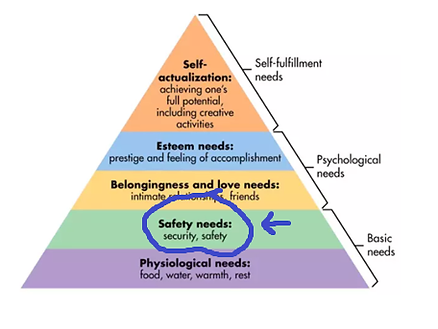
Bingo. Everyone (I mean EVERYONE) is affected by safety and security these days. Because it’s an invisible virus. Everyone feels on edge. And so, it’s very hard to progress upwards on Maslow’s hierarchy to feel happy again. Our foundations are too shaky, and we’re behaving in a reasonable way by feeling anxious, right? That’s my theory. One of them.
How might Maslow help us feel better?
Good old Maslow. There are two reasons why I think exploring Maslow’s Hierarchy of Needs will make us feel a bit better.
- It helps to confirm that we’re normal human beings, acting in rational way. That’s comforting for me anyway. The problem is not internal. We’re normal! Yayy!
- But that doesn’t mean that we have zero control. Because we can use this hierarchy to reassure ourselves. Our primal fight-or-flight brains are useful. But like a frightened animal, I think that we also need to soothe them sometimes. Especially over the long-term. We have to try to nurture ourselves back to thinking rationally.
So, if you have access to a warm bed, running water, yummy food, plenty of soap and a face mask, remind yourself of this fact! These are the basics. The fundamental things we need to know, before we can start to feel better. So, that’s what I’m going to start doing, to calm down my COVID-brain. Every time I feel anxious or demotivated, I’m just going to go and look at my cosy bed and pour a glass of water. I will let you know if it works!
What about belongingness and love needs?
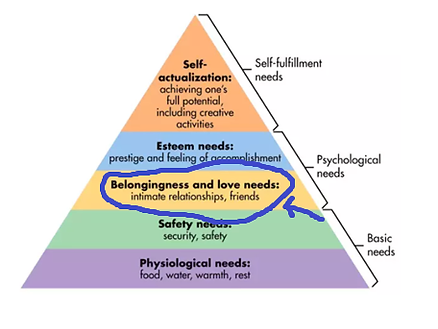
That’s the next big one isn’t it? That’s where so many of us have been struggling. It’s so tough to be away from family and friends… or worse still, to feel like we’re losing them.
For myself, I’m not always that great at this stuff. But I have been taking part in or hosting occasional virtual parties and virtual sessions.
To try to fix my COVID-brain, here are some things I found useful:
- Invite three or four people to write up some questions and host a mini pub quiz online
- Take part in an online activity. Here is one I want to try: https://www.migrateful.org/
- Watch animals having fun in nature: https://explore.org/livecams/grace-gorillas/gorilla-forest-corridor (I like to have the gorillas chilling in the background while I work).
https://youtube.com/watch?v=rgXWDk7rh4w%3Fautoplay%3D0%26mute%3D0%26controls%3D1%26origin%3Dhttps%253A%252F%252Fhdinvestmentcontent.com%26playsinline%3D1%26showinfo%3D0%26rel%3D0%26iv_load_policy%3D3%26modestbranding%3D1%26enablejsapi%3D1%26widgetid%3D1
Is self-actualization possible in lockdown?
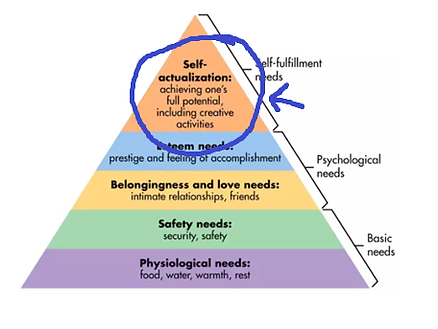
The ultimate stage of happiness is self-actualization. This is the top of Maslow’s hierarchy. And as the theory goes, if you’ve got that, you have everything you need to be happy. So, is self-actualization possible in COVID-times? My gut tells me no. Because even if you were happy, you’d get survivor’s guilt and feel unhappy again. Massive bummer.
But don’t listen to me, what does the psychology say?
Maslow’s number one student was called Carl Rogers, and he developed Maslow’s theory. Rogers believed that every human in the world wants to self-actualize, to become their “ideal self”.
Rogers identified five characteristics of a fully self-actualized person. And so basically, if you have everything else on Maslow’s hierarchy of needs, and you smash this list of self-actualization, you are “happy”… Exciting, isn’t it?
Here’s the list:
Self-actualized people are (according to Rogers):
- Open to experiences, both positive and negative
- Living existentially, a fancy way of saying, “living in the moment” or “being present”
- Trusting of their feelings and instincts
- Creative and able to take a risk from time to time
- Fulfilled with the life they have, and on the lookout for new adventures ahead!
So… Is it possible to be happy in lockdown? Well, You tell me!
Looking at this list, I feel like acknowledging the whole experience, especially the bad stuff, will make me a happier person post-lockdown. I feel like this is a difficult time, that’s true. And calmly accepting it and recognising our own opportunities and limitations will help us to become truly happy when it ends. Happier, perhaps in some ways than we were before. More grateful for our freedoms anyway.
Could COVID-brain make me a better person?
Ummm…. I’m going to conclude with a yes.
Yes, COVID-brain could make us better people. Because we have a new sense of perspective now. Our mad COVID-brains have realigned our priorities. We don’t care about fashion; we just want our friends. We don’t a spray tan, we just want to be in the sunshine. We want to hug again. We want to see family members who we spent most of our lives avoiding. We want the stuff that matters. And bollocks to the rest.
I see it in sustainable investing. Suddenly in 2020, everyone wanted to use their money for good. It was like BAM! Planet before profit. Out of nowhere! We saw it with Black Lives Matter too, social injustice is making us angry. We’re not putting up with bulls*** anymore. And maybe we have our COVID-brains to thank for that.
Whoa… I genuinely did not expect this article to take that turn. But do you know what? I like my COVID-brain. I look like actual crap. But my brain has never been more focused on what truly matters.
When everything ends, I hope a little bit of COVID-brain stays behind.

While this article is intended to be helpful, it is not advice…
It goes without saying that I am not a psychologist. Not even an amateur. If you are experiencing anxiety, there are some really good sites you can visit, like https://www.mind.org.uk/ for example, or the NHS has a huge list here: https://www.nhs.uk/conditions/stress-anxiety-depression/mental-health-helplines/.


